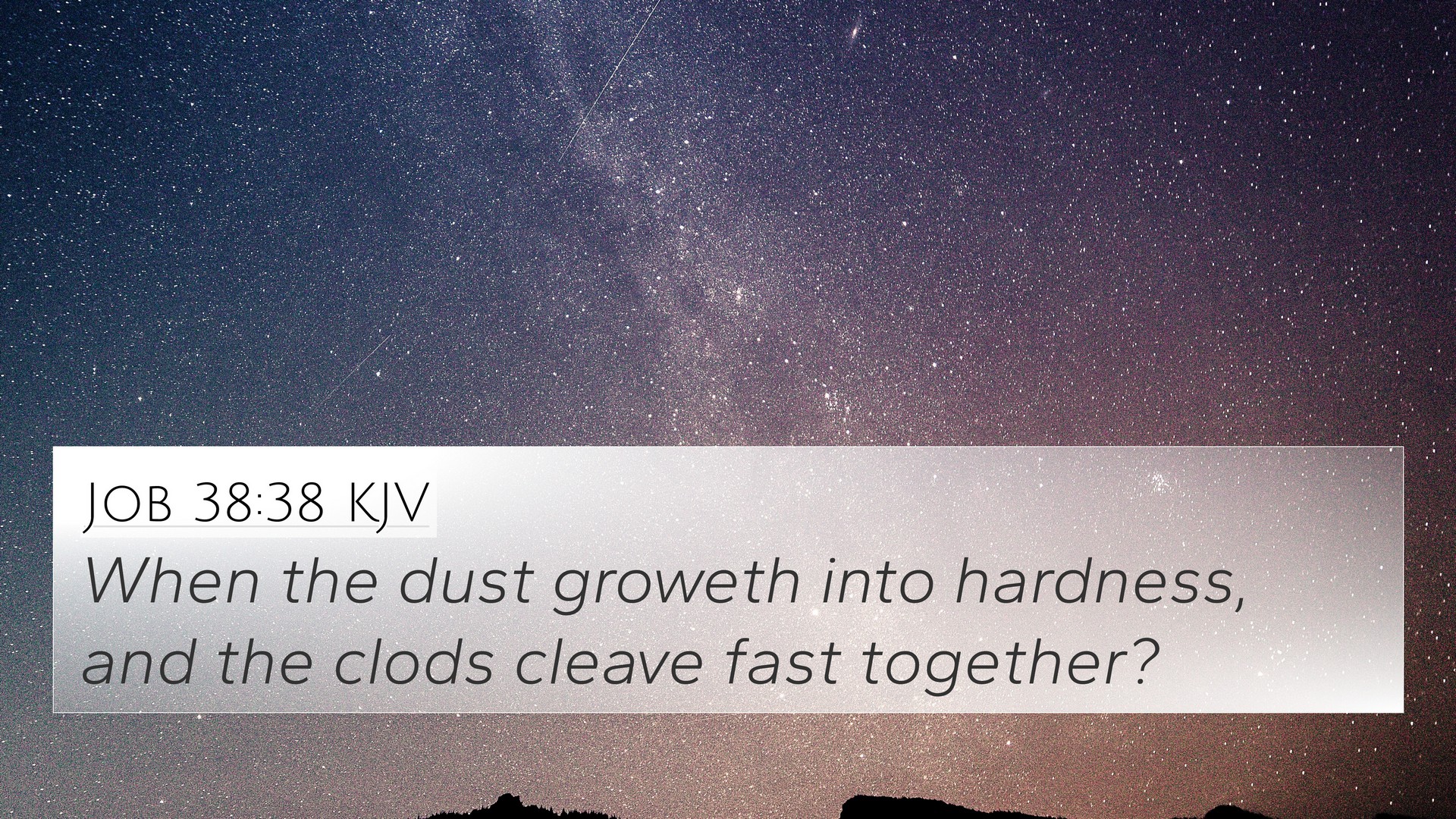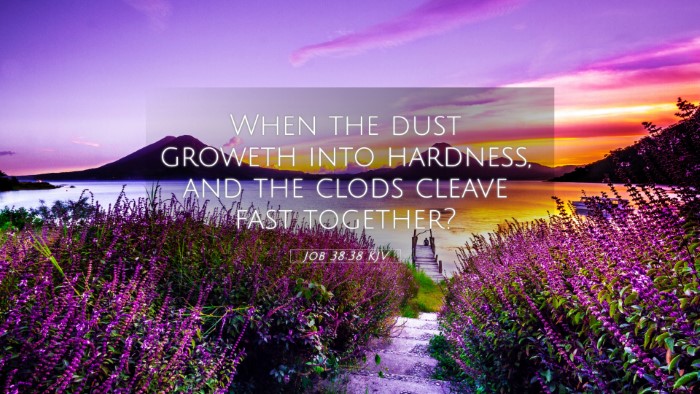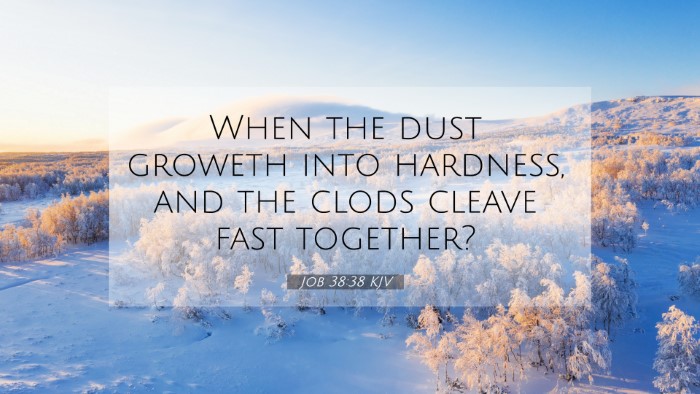Understanding Job 38:38
Job 38:38 reads: "When the dust hardens into a mass, and the clods stick fast together?" This verse belongs to a larger passage where God finally responds to Job's questions about his suffering, emphasizing divine wisdom and the creation of the world.
Summary of Insights
The insights from several public domain commentaries can amplify our understanding of this verse:
-
Matthew Henry: Henry emphasizes the omnipotence of God, questioning Job's understanding of creation and the natural order. The verse reflects God's control over nature, highlighting the power that He exerts in forming both the earth and its structures.
-
Albert Barnes: Barnes draws attention to the imagery of dust and clods, suggesting that God is illustrating the process of creation and the interconnectedness of all earthly elements. This highlights human limitations in understanding divine authority and the complexities of the universe.
-
Adam Clarke: Clarke offers a theological perspective, interpreting the verse as a challenge to human pride. He notes that while humans may have the ability to observe and contemplate creation, they lack the power to manipulate or fully understand its processes.
Thematic Bible Verse Connections
This verse can be cross-referenced with several other scriptures that relate to the themes of creation, divine sovereignty, and human limitation:
-
Genesis 1:26-27: The creation of humanity in the image of God underscores the special role humans play in creation, as well as their limitations in comprehending divine authority.
-
Psalms 104:24-25: These verses celebrate the vastness and complexity of nature that God has created, paralleling the awe struck in Job 38.
-
Isaiah 40:12: This passage questions who has measured the waters or the heavens. It underscores God's immeasurable wisdom, complementing Job 38:38's theme of divine authority over creation.
-
Romans 11:33: Here, Paul praises the wisdom and knowledge of God, emphasizing themes of divine mystery similar to those found in Job.
-
Proverbs 3:5-6: Trusting God rather than understanding His ways echoes Job's struggle to grasp God's sovereignty amid suffering.
-
Job 12:10: This verse asserts that God is the giver of life and is in control over all creation, closely connecting to God's rhetorical questions in Job 38.
-
Job 36:22-23: These verses reflect on God's greatness and challenge Job’s understanding of righteousness, connecting well with Job 38's themes.
Using Cross-Referencing in Bible Study
Cross-referencing Bible verses enhances understanding of scriptural themes and promotes deeper insights. Here are some tools and methods:
- Bible Concordance: Use these references to find connections between verses quickly.
- Cross-Reference Bible Study: Combine related verses to form a cohesive understanding of a theme.
- Comparative Bible Verse Analysis: Identify similarities and contrasts between verses to gain clarity.
- Bible Reference Resources: Consider using Bible dictionaries or online resources to explore cross-references.
- Inter-Biblical Dialogue: Study interactions between the Old and New Testament to see continuity in God’s message.
Identifying Connections Between Scriptures
Bible study can reveal connections that may not be immediately evident. For example:
- How does Job 38:38 connect with other questions posed by God in the Book of Job?
- What does it reveal about the nature of creation in light of New Testament teachings?
- Where can we find parallels in the teachings of Christ regarding understanding God’s creation?
Conclusion
Job 38:38 serves as a powerful reminder of God's sovereignty and the limitations of human understanding amid suffering. By engaging with the cross-referential nature of scripture, we can deepen our knowledge of Biblical themes and their implications for faith and life.


